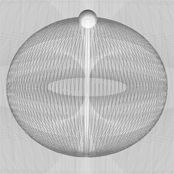



































relational inquiry regarding meaning » reality » self/selfhood
• Bergson's duration (esp. for experiencer as dynamic)
• Curtis, A. (2002) The century of the self [BBC2 documentary], showing various ways consumer society has made us hyper-focused on our unique selves rather than what is common to us all.
• Heidegger: Dasein as "that entity which in every case has Being-in-the-world as the way in which it is" (Being and Time 79/53).
 • Jung: ego, Self, and ego-Self axis. At birth, ego is coterminous with the forces of the collective unconscious (as Self). Through alternating movements of inflation and alienation, the ego dislodges itself from those forces, finding its own unique perspective thereupon. The connection between ego and Self is maintained through the ego-Self axis, and in the process of individuation, it's this connection that is the psyche's primary focus. Ego works in harmony with Self and is thereby able to make its unique contribution thereto. In terms of this Project, experiencer as self/part correlates with Jung's ego, experiencer as world/whole correlates with Jung's Self, and experiencer as dynamic correlates with the rhythmically/actively integrating ego-Self axis.
• Jung: ego, Self, and ego-Self axis. At birth, ego is coterminous with the forces of the collective unconscious (as Self). Through alternating movements of inflation and alienation, the ego dislodges itself from those forces, finding its own unique perspective thereupon. The connection between ego and Self is maintained through the ego-Self axis, and in the process of individuation, it's this connection that is the psyche's primary focus. Ego works in harmony with Self and is thereby able to make its unique contribution thereto. In terms of this Project, experiencer as self/part correlates with Jung's ego, experiencer as world/whole correlates with Jung's Self, and experiencer as dynamic correlates with the rhythmically/actively integrating ego-Self axis.
• stoicism, e.g., Epictetus's Discourses Book II, Chapter X
• subject (as Modern concept): Dürer's Self-Portrait (1500); J's separation from I (c. 1524); Descartes, Kant, etc. (see also Hatab)
 • taxonomy: On the Wikipedia page for Taxonomic rank an inverted triangle displays taxonomy from domain to species. This is an interesting symbolic parallel with this Project's use of an inverted cone/triangle to represent experiencer. An experiencer is more than a particular point-of-view; that's just the apex of the cone/triangle. An experiencer could very well be a complex arrangement of material that serves to capture and channel environment energies in such a way that experiences are localized for a lifetime. Particles are arranged according to different patterns at different levels from domain to species, then vary between species and members of species.
• taxonomy: On the Wikipedia page for Taxonomic rank an inverted triangle displays taxonomy from domain to species. This is an interesting symbolic parallel with this Project's use of an inverted cone/triangle to represent experiencer. An experiencer is more than a particular point-of-view; that's just the apex of the cone/triangle. An experiencer could very well be a complex arrangement of material that serves to capture and channel environment energies in such a way that experiences are localized for a lifetime. Particles are arranged according to different patterns at different levels from domain to species, then vary between species and members of species.
_various other conceptions of self, given different approaches:
• phenomenological: self/world interdependence: self is necessarily contextualized as being-in-the-world
• radical empiricism: experience is primary, so experiencer and experienced are interdependent derivatives
• panpsychism: the basic stuff of our reality has two sets of basic properties: mental and physical
• process philosophy: primary are events, and, presumably, "subjects" and "objects" are derivative abstractions from "actions"
• non-dual: positive/outer and negative/inner existence self-cancel
• Jungian: ego is definitely dependent upon Self and the collective unconscious, and Self has a life of its own
_texts
• Dennett, D. (1986, 1992) The self as a center of narrative gravity
• Edinger, E. F. (1972) Ego and archetype: Individuation and the religious function of the psyche [Shambhala 1992]—including an account of the Jungian process of individuation
• Hatab, L. J. (2015) Can we drop the subject? Heidegger, selfhood, and the history of a modern word. In H. Pedersen & M. Altman, eds. Horizons of authenticity in phenomenology, existentialism, and moral psychology: Essays in honor of Charles Guignon, pp. 13-30 [Springer]
• Morisato, Takeshi. (2026) Between being and emptiness: In Japanese philosophy, unlike the atomised Western self, we are 'ningen,' each enmeshed with other humans and nature [Aeon.co]
• Plato's Phaedrus—wherein Plato likens the human soul to a team of winged horses together with their charioteer
• Stewart, J. (2020) The emergence of subjectivity in the ancient and medieval world: An interpretation of Western civilization [Oxford UP]
• Zahavi, D. (2005) Subjectivity and selfhood: Investigating the first-person perspective [MIT Press]
